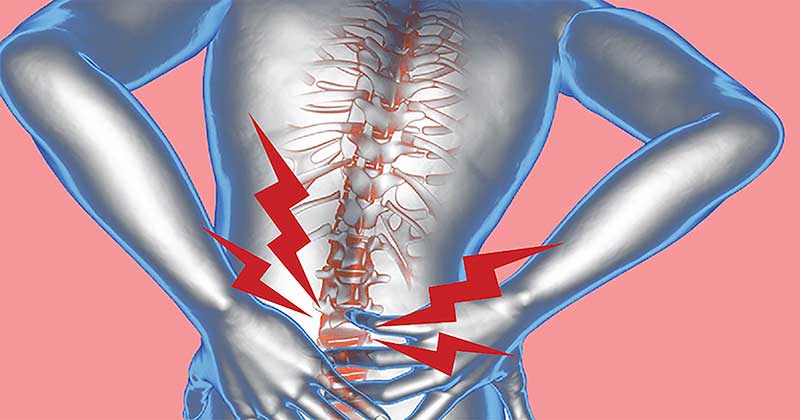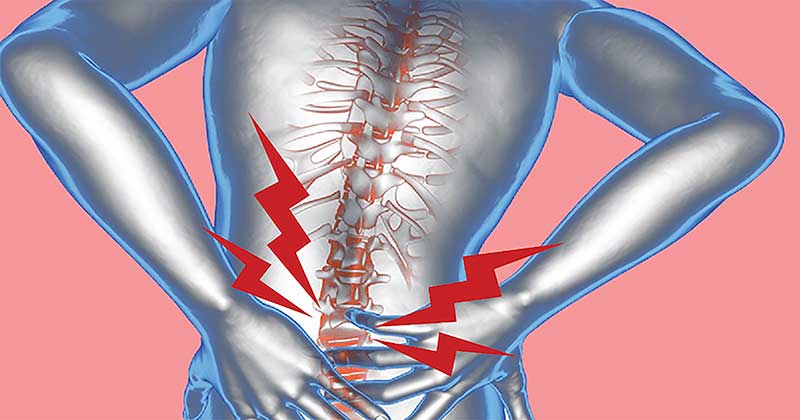According to a study published in The Journal of Intensive Care Medicine, being deficient in this mineral makes you twice as likely to die as other people (1).
That mineral? Magnesium.
In fact, over 80% of the American population is chronically deficient in magnesium – and it’s not a good thing. Magnesium is required for the proper function of over 300 biochemical reactions in the body. It is needed for proper bowel function, heart muscular contractions, relaxation of blood vessels, regulation of blood sugar levels, proper bone and teeth formation, creation of ATP (energy molecules of the body), reducing cancer risk, and many other functions.
One of the most important functions of magnesium, however, is that it is one of the most powerful relaxation minerals available, acting as an antidote to stress and insomnia.
The Relaxation Mineral
It’s no wonder magnesium is known as the ultimate relaxation mineral – after all, it does facilitate over 300 different enzymatic reactions in the body. These reactions are responsible for helping you feel less tight, irritable, crampy, and stiff. Guess what happens when you’re lacking magnesium? You feel more tight, irritable, crampy and stiff.
Magnesium is found in pretty much every tissue of the body, but it likes to do its work mostly in the bones, muscles, and brain.
Not only can magnesium reduce stress, but it improves sleep by reducing the production of cortisol (the stress hormone). It is also a critical element in cardiovascular health (2), and for this reason, it is often used by individuals who have suffered a heart attack or arrhythmia. Magnesium can also be utilized as a natural diuretic in higher doses (helps to get rid of water retention) and is often used when preparing for a colonoscopy.
It’s surprising, considering all of the benefits of magnesium, that it isn’t more widely discussed or promoted by doctors to their patients. In fact, in the emergency medical field, it isn’t uncommon to see magnesium used on patients in critical condition.
As one doctor noted, “I remember using magnesium when I worked in the emergency room. It was a critical “medication” on the crash cart. If someone was dying of a life-threatening arrhythmia (or irregular heart beat), we used intravenous magnesium. If someone was constipated or needed to prepare for colonoscopy, we gave them milk of magnesia or a green bottle of liquid magnesium citrate, which emptied their bowels. If pregnant women came in with pre-term labor, or high blood pressure of pregnancy (pre-eclampsia) or seizures, we gave them continuous high doses of intravenous magnesium (3).”
But why wait until you’re in critical condition? Why not start utilizing the benefits of magnesium NOW, from the comforts of your own home?
Are You Deficient in Magnesium?
If you’ve noticed you’re particularly achy, irritable, and suffer from muscle cramps and stiff joints, you’re probably magnesium deficient (4). After all, these issues are the complete opposite of what “relaxation” would entail, so it makes sense that magnesium is the ultimate relaxer if it can help remediate these problems.
If you’re suffering from any of the following symptoms (including those mentioned above), you might be magnesium deficient:
– Muscle cramps or twitches
– Insomnia
– Irritability
– Sensitivity to loud noises
– Anxiety
– Autism
– ADD
– Palpitations
– Angina
– Constipation
– Anal spasms
– Headaches
– Migraines
– Fibromyalgia
– Chronic fatigue
– Asthma
– Kidney stones
– Diabetes
– Obesity
– Osteoporosis
– PMS
– High blood pressure
– Menstrual cramps
– Irritable bladder
– Irritable bowel syndrome
– Reflux
– Trouble swallowing
Magnesium deficiency has even been linked to inflammation in the body, and higher C-reactive protein (CRP) levels (a blood test marker for inflammation in the body). One study found that “inflammatory indicators in the body such as CRP, TNF (tumor necrosis factor-alpha), and IL6 (interleukin 6) were all reduced when magnesium intake was increased.” Inflammation that was found within the artery walls was also reduced with magnesium intake (5).
How To Remediate Magnesium Levels In The Body
Unfortunately, foods that are high in magnesium (such as seaweed, nuts, greens, cacao, and beans) are not commonly eaten in a standard American diet. Our soil magnesium levels have also been steadily decreasing since the 1950s (thanks to poor farming practices and herbicide and pesticide use), so even the food we eat is absorbing very little magnesium (and thus, less magnesium intake for us).
Although food sources are chronically low in magnesium, you can still opt for eating foods that absorb the most magnesium from the soil that they can. These include things like cacao, hemp seeds, pumpkin seeds, chia seeds, sesame seeds, sunflower seeds, cashews, almonds, spinach, and swiss chard.
You can also perform the following steps to ensure you stop draining your body of magnesium while supplying it with as much of it as you can:
- Limit your intake of caffeine, low-quality table salt, alcohol, and sugar.
- Take up relaxing practices such as deep breathing, journaling, and meditation to reduce stress
- Avoid eating junk food and increase your intake of whole, fresh foods.
- Soak in an Epsom salt bath 2-3 times per week.
- Take a high-quality magnesium supplement at night for optimal absorption.
Important Notice: This article was originally published at www.livelovefruit.com by Carly Fraser where all credits are due.
Disclaimer
The watching, interacting, and participation of any kind with anything on this page does not constitute or initiate a doctor-patient relationship with Dr. Farrah®. None of the statements here have been evaluated by the Food and Drug Administration (FDA). The products of Dr. Farrah® are not intended to diagnose, treat, cure, or prevent any disease. The information being provided should only be considered for education and entertainment purposes only. If you feel that anything you see or hear may be of value to you on this page or on any other medium of any kind associated with, showing, or quoting anything relating to Dr. Farrah® in any way at any time, you are encouraged to and agree to consult with a licensed healthcare professional in your area to discuss it. If you feel that you’re having a healthcare emergency, seek medical attention immediately. The views expressed here are simply either the views and opinions of Dr. Farrah® or others appearing and are protected under the first amendment.
Dr. Farrah® is a highly experienced Licensed Medical Doctor certified in evidence-based clinical nutrition, not some enthusiast, formulator, or medium promoting the wild and unrestrained use of nutrition products for health issues without clinical experience and scientific evidence of therapeutic benefit. Dr. Farrah® has personally and keenly studied everything she recommends, and more importantly, she’s closely observed the reactions and results in a clinical setting countless times over the course of her career involving the treatment of over 150,000 patients.
Dr. Farrah® promotes evidence-based natural approaches to health, which means integrating her individual scientific and clinical expertise with the best available external clinical evidence from systematic research. By individual clinical expertise, I refer to the proficiency and judgment that individual clinicians acquire through clinical experience and clinical practice.
Dr. Farrah® does not make any representation or warranties with respect to the accuracy, applicability, fitness, or completeness of any multimedia content provided. Dr. Farrah® does not warrant the performance, effectiveness, or applicability of any sites listed, linked, or referenced to, in, or by any multimedia content.
To be clear, the multimedia content is not intended to be a substitute for professional medical advice, diagnosis, or treatment. Always seek the advice of your physician or other qualified health providers with any questions you may have regarding a medical condition. Never disregard professional medical advice or delay in seeking it because of something you have read or seen in any website, video, image, or media of any kind.
Dr. Farrah® hereby disclaims any and all liability to any party for any direct, indirect, implied, punitive, special, incidental, or other consequential damages arising directly or indirectly from any use of the content, which is provided as is, and without warranties.


